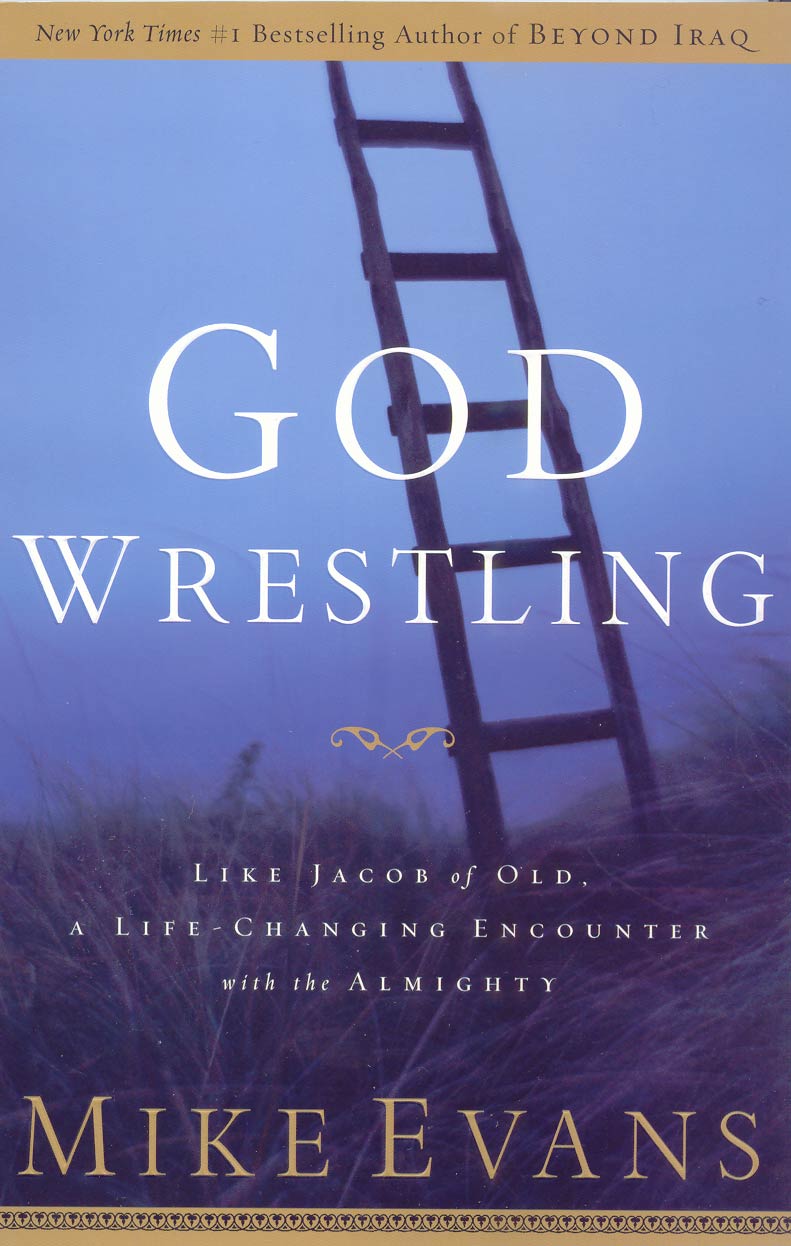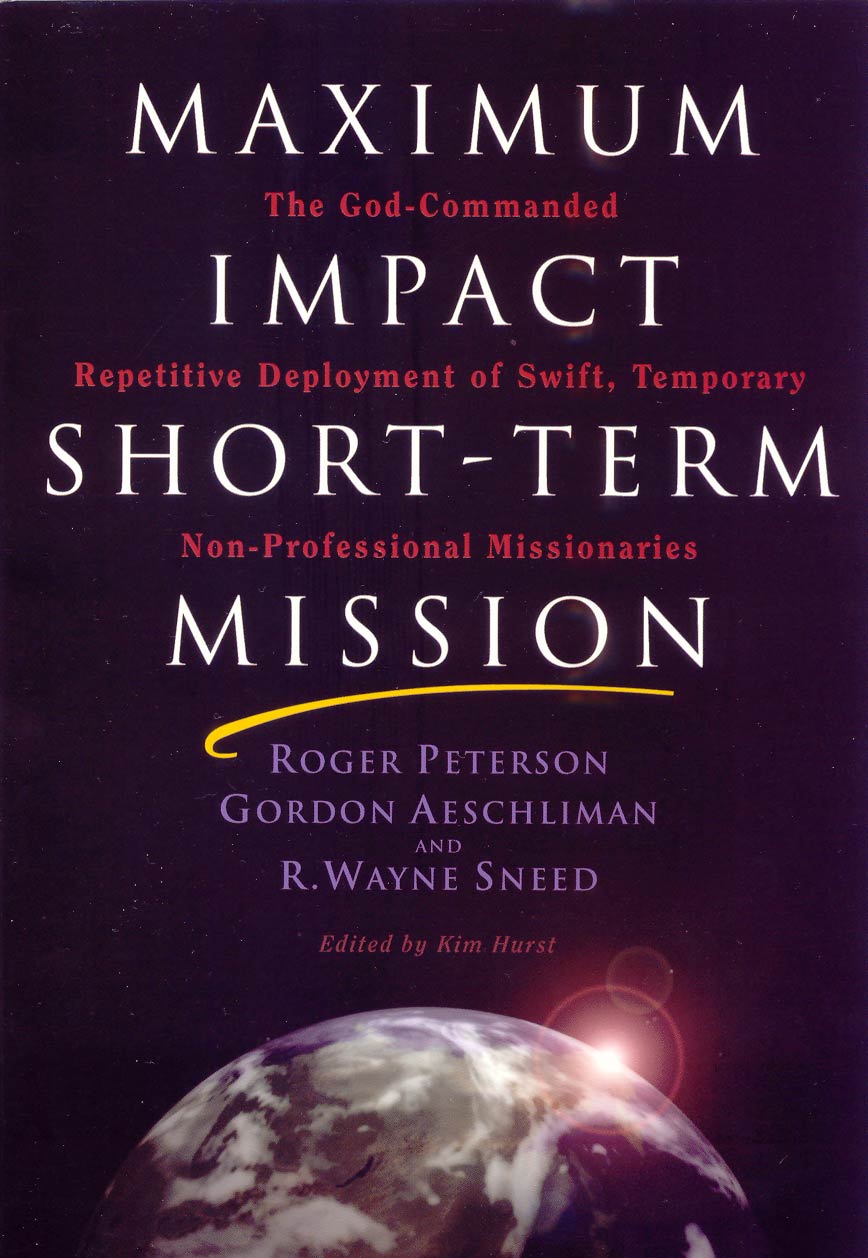AN APPEAL FOR SUPPORT
We invite you to support this ministry. Contributions in support of this Ministry are tax-deductible. Kindly send your support to
Bethany International
6820 Auto Club Road, Suite A
Bloomington, MN 55438.
Please write Thirumalai's Ministry in the memo column. Also, please buy your books using the AMAZON link given in every page. Even the smallest contribution will help in running this journal.
BOOKS FOR YOU TO READ
AND DOWNLOAD
- THE LAST DAYS OF JESUS' EARTHLY MINISTRY Pastor Dave Strem with James Skeen
- SO, WHAT WILL YOU LEAVE BEHIND? LeRoy Dugan
- Standing on the Shoulders of Giants
Learning From Those Who Preceded Us in Faith Pastor Dave Strem with James Skeen - SAVED BY HIS LIFE
Understanding the Book of Romans Pastor Harold Brokke - MARRIAGE -- Building Strong Lives and Strong Relationships Pastor Dave Strem with James Skeen
- HELP THE HURTING, SUPPORT THE LAME!
Lessons from Isaiah by Pastor Dave Strem, and James Skeen - WARNINGS FOR AMERICA
Lessons from Isaiah by Pastor Dave Strem with James Skeen - THE SPIRIT'S PASSION
A Book of Christ-centered Poems and Free Verse by Pastor Harold Brokke - THE LAW IS HOLY by Pastor Harold Brokke
- WORLD MISSIONS - A HISTORICAL PERSPECTIVE
by Tom Shetler - LIVE A VICTORIOUS LIFE IN THE SHADOW OF THE CROSS! : INTERCESSION, WARFARE, AND DELIVERANCE
by Pastor Ted Hegre. - MISSING PIECES: THE INCOMPLETE GOSPEL by LeRoy Dugan
- LUTHER'S PROTEST by M. S. Thirumalai
- TELL ME IT'S TRUE ...
A Book Of Poems by Stan Schmidt - SOMETHING IS GREATER THAN WONDERS...
A Book Of Poems & Free Verses by Pastor Harold Brokke - GEMS OF TRUTH by Stan Schmidt
- WHERE IN THE WORLD IS GOD? by Alec Brooks
- LIGHT OF THE WORLD, an Original Screenplay by W. G. Orr
BACK ISSUES
- NOVEMBER 2001
- DECEMBER 2001
- JANUARY 2002
- FEBRUARY 2002
- MARCH 2002
- APRIL 2002
- MAY 2002
- DECEMBER 2002
- JANUARY 2003
- FEBRUARY 2003
- MARCH 2003
- APRIL 2003
- MAY 2003
- JUNE 2003
- JULY 2003
- AUGUST 2003
- SEPTEMBER 2003
- OCTOBER 2003
- NOVEMBER 2003
- DECEMBER 2003
- JANUARY 2004
- FEBRUARY 2004
- MARCH 2004
- APRIL 2004
- MAY 2004
- JUNE 2004
- AUGUST 2004
SEND YOUR ARTICLES FOR PUBLICATION IN Christian Literature and Living.
- E-mail your articles and book-length reports to thirumalai@bethfel.org or send it by regular mail in a floppy disk to:
M. S. Thirumalai, Ph.D.
6820 Auto Club Road, Suite C
Bloomington, MN 55438 USA - Your articles and booklength reports should be written, preferably, following the MLA Stylesheet.
- The Editorial Board has the right to accept, reject, or suggest modifications to the articles submitted for publication, and to make suitable stylistic adjustments. High quality, academic integrity, ethics, and morals are expected from the authors and discussants.
Copyright © 2001
M. S. Thirumalai
ATTITUDE, NOT AGE, DETERMINES GREATNESS
Alec Brooks
PUTTING OFF THINGS: DECISION IS WHAT MATTERS
ONE OF THE DANGERS WE ALL face is that of putting off until later what we are going to be and letting the present moment, which really determines the future, slip away. Our tendency is to postpone that time when we will change and become the kind of persons we sense we ought to be. And it never happens just by the passing of time.
When we are 15, we think that when we are 20 we will be what we ought to be. But when we get to be 20, we think that when we are 25 or 30 we will be more mature, and things will be different. Then we get to be 30 and wonder how it arrived so quickly. Getting older doesn't guarantee maturity or necessarily produce the kind of changes God wants us to experience. Decisions that are made at different stages of our lives are what result in our becoming the kind of person God wants us to be.
TO BE SEPARATED UNTO THE GOSPEL
At the end of his life the Apostle Paul could say, "I have fought the good fight, I have finished my course, I have kept the faith: henceforth there is laid up for me a crown of righteousness." There was no sense of regret, no wishing he could go back and live life over again. That is the way God wants us to live.
The key to Paul's life is found in Rom. 1:1. "Paul, a servant of Jesus Christ, called to be an apostle, separated unto the gospel of God."
He tells us, first of all, what his position was in relationship to Jesus. Second, he states the commission he received from Jesus, and third, he talks about his separation to the gospel of God.
TO BE A SLAVE OF JESUS
Paul said his position in life was that of a slave of Jesus. "So whether we are at home or away, we make it our aim to please him" (2 Cor. 5:9). "But whatever gain I had, I counted as a loss for the sake of Christ" (Phil. 3:7). Nothing else mattered but to live for the Lord Jesus.
Paul began his letter to the Romans by affirming the deity of Christ and confirming his allegiance to Him. Rome was the capital of the Roman Empire and the seat of the Emperor. Roman generals, when writing to the emperor, would confess Caesar as Lord. Paul writes to the Romans and says that Jesus, not Caesar, is Lord.
THE LIFE OF THE EARLY CHRISTIANS
It we understand something of what was happening in the lives of the early Christians, we will see the significance of that statement. In Smyrna, there was a plague and an earthquake. The Romans wanted to find someone to blame, and they chose the Christians. They brought them into the arena to force them to say, "Caesar is Lord," and to sacrifice to his image or be tortured unto beds of spikes. Others were torn apart by lions.
One who was living at this time in Smyrna was Polycarp. The cry went out to bring him to the arena. Those who arrested him were impressed with his Christian character and graciousness. Because he was an old man in his eighties, the proconsul tried to reason with him. "Polycarp, swear by the guiding spirit of Caesar, curse Christ and I will release you."
Straightening up in his chains, Polycarp said, "Eighty-six years I have served him and he never did me any wrong. How then can I blaspheme my king, whom I serve. Hear my confession. I am a Christian."
When they were about to nail his hands to the stake so he wouldn't try to escape, Polycarp said, "Leave me as I am. He who grants me to endure the fire will also enable me to remain on the pyre without the help of nails." So they tied the old man's hand and he prayed, "Father, I bless thee for having been pleased in thy goodness to bring me to this hour."
JESUS IS LORD!
When Paul writes to Rome and says "Jesus is Lord," it is an affirmation of his allegiance to Christ. That ultimately cost him his life also.
Oswald Chambers said, "The passion of Christianity is that I deliberately sign away my own rights. I become a bond slave of Jesus Christ."
The uncrucified self wants position and recognition. But greatness in God's kingdom is not determined by position or recognition but by a disposition of heart. "And whoever would be first among you must be your slave" (Matt. 20:27).
Richard Foster in his book, Celebration of Discipline, says, "Most of us don't have any problem with not being the greatest. We know our chance of being the greatest is pretty slim, so we are willing not to be the greatest as long as we don't have to be the least."ATTITUDE OF THE HEART TO SERVE: WHOSE SLAVE ARE YOU?
I am convinced there is no anointing or authority in the Christian life apart from the attitude of the heart, the disposition to serve. Satan wanted position and recognition, and God had to cast him out of heaven.
Paul took the position of a slave to Jesus. Whose slave are you? You are a slave to what which you have yielded yourself - the slave of the uncrucified self dictated by its needs, desires, passions and interests, or you are a slave of Jesus Christ.
Paul goes on to refer to his commission, which he received from Jesus. You can't be a slave of Jesus without serving Him. The whole point of slavery is service. You can't say to Jesus, "Out in the world it is cold, and people are hungry, but in your house it is pleasant and warm; I will be your salve so I can have security and everything that goes with it." Paul was Jesus' slave and Jesus was Paul's sovereign. In 1 Tim. 1:1 Paul says he is an apostle by the command of God. It was a divine appointment, not a voluntary assignment.
IS THE SERVICE OUR DISCRETION?
We sometimes talk about the place of service to which God has appointed us as though where, how, and when we serve is at our own discretion. I have heard missionaries say that unless circumstances or people change, they are not going back. When Jesus puts me where He wants me, I have no right to leave until He tells me to. I cannot be somewhere other than where He wants me, I have no right to leave until He tells me to. I cannot be somewhere other than where He wants me and still consider myself His slave.
To confess that Jesus is Lord is to give Him the right to do as He pleases without asking permission. If He has to ask my permission, I am neither His lave nor is He my sovereign.
When Paul went to prison, he didn't complain; he praised Jesus. When he was cast adrift in the Mediterranean, he was praising God. Why? Because he knew he was there in the will of God. We sometimes talk about full-time service or part-time service. There is no such dichotomy in God's service. There is only full-time service.
PAUL'S TESTIMONY
A slave has no rights, only the responsibility to serve. I am a servant of the Lord Jesus 24 hours a day, and everything I do is to be an expression of my love and obedience to and for Him. That was Paul's testimony.
Speaking to students at Urbana, Eric Alexander said, "There are no ideal places or circumstances in which to serve God or live for Him in the world except the place to which He has called you and put you as His servant."
Some people do not yield their lives to Jesus because they are afraid of what He will ask them to do. He may ask us to do difficult things, but He says, "I will never leave you nor forsake you." He will give us grace. "For my strength is made perfect in weakness." He will help us put up with the bugs and discomforts, the shipwrecks and prison sentences and everything else because with His commands come His enablings.
SET APART FOR THE GOSPEL
Paul's life was also marked by his separation to the gospel. The phrase "set apart" conveys the idea of a piece of ground that has been set apart for a particular use. In every city there are certain areas that can be used only for specified purposes. Some ground is zoned commercial, some industrial and some residential. Paul says, "My life has been zoned 'gospel.' " This setting apart for the gospel of God determined the boundaries of his life. I suggest that if we are going to learn to succeed in the Christian life as Paul and other great men and women of God have, there have to be boundaries that are established around our lives within which we live. These give notice that certain things are not allowed to infringe because they will hinder our service to the gospel of Christ.
The desire for security can be a hindrance. If you are going to serve Jesus, there is no guarantee of what the world calls security. The reason many people are not where God wants them to be is that they are looking for guarantees of security. It may cost you your life to be part of God's redemptive program for the world.
A STUDENT'S QUESTION
While I was growing up I attended the WEC conferences and prayer meetings. One of the students was a very quiet, gentle, gracious man by the name of Jim Rogers. Jim felt the call of God to go to what was then the Belgian Congo. He was there during the Congo Rebellion.
Because he was a British citizen, he could have been released, but he would not leave his fellow missionary, William McChesney, an American, who was ill. As a result, he and McChesney were stomped to death by the Simba rebels. There is no security for a slave of Jesus Christ, but there is a relationship and an eternal reward that supersedes everything else.
HINDRANCES
Materialism can be a hindrance. We sometimes talk about simplifying our life-style. Even a simplified life-style in the United States is so far beyond what many people in the world have ever experienced that we should speak of simplification with embarrassment. Materialism seeks to crowd the love of Christ out of our hearts. Paul said, "All those things that were gain to me, I count but loss for the excellency of the knowledge of Christ Jesus my Lord."
Affections can be a hindrance. There are some who are not in the gospel ministry because their hearts have gone in another direction. If you do not come to the place of surrendering your affections to Jesus, you will have difficulty finding your place of service. Those who are not married have to deal with this issue. God may call you to singleness. If He does, He will give you the grace to live as a single person. He must be Lord of our affections if we are to follow Him successfully.
Another hindrance is spiritual opposition. Satan will seek to deter us from moving ahead in the will of God. There is warfare, make no mistake about it. If you are going to serve Jesus, Satan will challenge you. When you sense discouragement coming, learn to recognize where it comes from and deal with it accordingly.
THE PURPOSE
Paul had boundaries around his life that not only determined the direction but defined the purpose of his life. That purpose was to preach the gospel. Why? First of all, because of his love for Christ; second, others' need for Christ which constrained him to preach the gospel. Jesus provided the good news, and His obedience to the Father made the good news possible for all, but it is our responsibility to preach the good news. It is our obedience that makes the good news available to all.
Where are we in relationship to where Jesus Christ wants us to be? It is easy to let life slip by. Time doesn't change anyone. Ten years from now I may be the same as I am today, I may have grown away from what God wants me to be, or I may have grown more into what God wants me to be. It isn't a matter of age; it is a matter of this moment's obedience that says, "Lord, I am here to serve you and that's all. It doesn't really matter what I do or where I do it, if anyone notices or doesn't notice, I am doing it for you."
Millions of people have seen and been challenged by the film, Chariots of Fire. Eric Lidell, one of the heroes in the film, went on to become a missionary in China. He was one of God's great ones, and as he lay dying from a brain tumor in a Japanese interment camp, his final words were, "It's full surrender." The Apostle Paul would have agreed.
CLICK HERE FOR PRINTER-FRIENDLY VERSION
REDEEMING THE STORMS - A Message of Hope and Prayer From Florida | THE LAST DAYS OF JESUS' EARTHLY MINISTRY - Triumphal Entry, Calvary, Resurrection, and Ascension | MISUNDERSTANDINGS - Are They Curable? | DEAR JESUS, Plant Deep Inside This Yielded Heart! | NEW MORALITY | WHAT SHOULD I DO WITH MY LIFE? | ATTITUDE, NOT AGE, DETERMINES GREATNESS | THE EFFECTS OF PRAYER ON THE BELIEVER'S LIFE | MISSIONARY OR MERCENARY? | THE MOST PROFOUND STATEMENTS EVER UTTERED | FORGIVE AND BE FORGIVEN! | HOME PAGE | CONTACT EDITOR
Alec Brooks
CHARIS INTERNATIONAL
E-mail: charisint@aol.com
Send your articles
as an attachment
to your e-mail to
thirumalai@bethfel.org.









